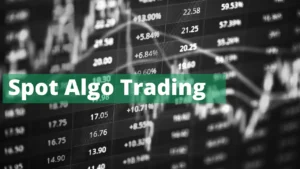Forex, or foreign exchange, is the world’s largest and most liquid financial market. However, due to its decentralized nature, it can also present various risks for traders and investors. This is where forex broker regulation comes in, acting as a crucial safeguard to ensure fair and transparent practices, protect investor interests, and maintain the overall integrity of the financial system.
While regulations may initially seem like an obstacle for forex brokerages, they are, in fact, a strategic tool that empowers them to build a strong foundation for success.
how does Forex Brokers operates?
Forex brokers act as middlemen in the foreign exchange market, connecting individual traders and investors with the vast global network of currency exchange. They provide the tools and access necessary to navigate this complex market.
Imagine a busy marketplace where currencies are constantly being bought and sold. Forex brokers act as your guide in this marketplace. They offer online platforms that function as your trading hub, allowing you to view live currency quotes, analyze market trends with charting tools, and ultimately place buy and sell orders for currency pairs. Once you decide to trade, the broker takes care of executing your order efficiently in the underlying market.
Many forex brokers also offer margin trading, a strategy that allows you to control a larger position in the market with a smaller initial investment. However, it’s important to remember that margin trading is a double-edged sword. While it can amplify your profits, it can also magnify your losses.
Traditionally, retail forex traders wouldn’t have direct access to the interbank market, where the bulk of currency exchange happens. Forex brokers bridge this gap, granting you the access you need to participate in the exciting world of forex trading.
On top of providing these core functionalities, reputable forex brokers also offer customer support services to assist you with any questions or challenges you might encounter while using their platform or trading forex.
What is Forex license ?
Forex broker license is more than just regulatory approvals; they serve as foundational pillars of trust and accountability within the financial industry, particularly in the realm of forex trading. These Forex Broker licenses are granted by recognized financial authorities or government agencies, and their significance lies in the comprehensive framework they establish for brokers to operate responsibly and ethically.
One of the primary reasons forex broker license is indispensable is legal compliance. Operating without a proper license can lead to severe legal consequences in many jurisdictions, as it indicates adherence to specific laws and regulations that govern financial services. By obtaining a Forex license, brokers commit to upholding these standards, ensuring they conduct their operations within the boundaries of the law.
Beyond legal compliance, Brokerage licenses are instrumental in safeguarding investor interests. Regulatory bodies impose stringent requirements to protect investors from potential fraud, misconduct, or operational failures. These measures often include mandates for brokers to segregate client funds from their own operational capital, maintain adequate reserves to cover client liabilities, and implement transparent trading practices. Such safeguards not only protect investors’ funds but also promote confidence in the integrity of the forex market.
Moreover, holding a forex broker license enhances market credibility. It signifies to clients, partners, and stakeholders that the broker operates under established regulatory frameworks and is subject to oversight by a respected authority. This credibility is crucial in attracting and retaining clients who prioritize safety, reliability, and transparency in their trading activities.
Another critical aspect of Forex broker license is their role in facilitating structured dispute resolution mechanisms. Licensed Forex brokers are typically required to have procedures in place for addressing client complaints or disputes swiftly and fairly. This framework helps resolve issues transparently, thereby maintaining trust and mitigating potential conflicts between brokers and traders.
Financial stability is also reinforced through licensing requirements. Regulators often set criteria regarding capital adequacy and risk management practices that brokers must meet to ensure they can operate soundly and sustainably. These standards contribute to the overall stability of the financial system by reducing the likelihood of broker insolvency or systemic risks associated with inadequate capitalization.
In essence, forex broker licenses serve as essential tools for promoting regulatory compliance, protecting investors, enhancing market integrity, and fostering a stable and trustworthy trading environment. They are pivotal in shaping responsible practices within the forex industry, benefiting brokers, traders, and the broader financial ecosystem alike.
Importance of Acquiring Forex License
Obtaining a forex broker license is crucial for several reasons that collectively ensure the legitimacy, reliability, and sustainability of a brokerage firm within the forex trading industry:
- Legal Compliance: Operating as a forex broker without a license is illegal in many jurisdictions. Licensing ensures that brokers adhere to specific laws and regulations set by financial authorities, thereby avoiding legal repercussions and demonstrating a commitment to operating within legal boundaries.
- Investor Protection: Forex broker licenses enforce standards aimed at safeguarding the interests of investors. These standards include measures such as segregating client funds from company assets, ensuring adequate capitalization to cover client liabilities, and implementing fair trading practices. Such protections enhance trust and confidence among clients, knowing their investments are handled with due diligence and transparency.
- Market Credibility: Holding a forex broker license enhances a firm’s credibility and reputation within the industry. It signals to clients, partners, and stakeholders that the broker operates under established regulatory frameworks and is subject to oversight by a reputable authority. This credibility is instrumental in attracting clients who prioritize safety, reliability, and ethical conduct in their trading relationships.
- Operational Standards: Regulatory authorities impose operational standards that licensed Forex brokers must meet. These standards cover various aspects such as the execution of trades, transparency in pricing, operational risk management, and the security of trading platforms. Compliance with these standards ensures that brokers operate efficiently and ethically, minimizing risks for both clients and the broader financial system.
- Dispute Resolution: Licensed brokerage companies are typically required to have structured mechanisms for handling client disputes and complaints. This ensures that any issues arising from trading activities are addressed promptly and fairly, contributing to client satisfaction and retention.
- Financial Stability: Regulatory requirements often include criteria related to financial stability and risk management. Brokers must maintain adequate capital reserves and adhere to prudent risk management practices to withstand market fluctuations and ensure ongoing operations. This stability is crucial for maintaining client trust and regulatory compliance over the long term.
How to launch a forex brokerage business? step by step process
Launching a forex brokerage business involves several strategic steps to ensure regulatory compliance, operational readiness, and market entry. Here’s a comprehensive guide to the key steps involved:
- Market Research and Business Planning:
- Conduct thorough market research to identify target markets, customer segments, and competitive landscape.
- Develop a comprehensive business plan outlining your business objectives, service offerings, target clientele, marketing strategy, and financial projections.
- Legal and Regulatory Considerations:
- Choose a jurisdiction for acquiring a forex broker license based on regulatory requirements, market access, and operational considerations.
- Consult legal experts to understand and comply with regulatory requirements, including capital adequacy, client fund protection, risk management, and anti-money laundering (AML) policies.
- Company Formation and Registration:
- Incorporate your company and register it with the relevant authorities in your chosen jurisdiction.
- Obtain necessary business licenses and permits required to operate a financial services firm.
- Technology Infrastructure:
- Select a robust trading platform that meets your operational needs and regulatory requirements.
- Set up secure and reliable IT infrastructure for trading operations, data management, and client communication.
- Financial Management:
- Establish banking relationships to manage client deposits, withdrawals, and operational funds.
- Develop financial controls, accounting systems, and procedures for compliance with regulatory reporting requirements.
- Risk Management Policies:
- Develop and implement comprehensive risk management policies and procedures to mitigate trading risks, operational risks, and cybersecurity threats.
- Ensure compliance with regulatory standards for margin requirements, leverage limits, and client risk disclosures.
- Client Onboarding and Support:
- Design client onboarding procedures, including KYC (Know Your Customer) and AML (Anti-Money Laundering) checks.
- Provide ongoing client support through multiple channels, including customer service, educational resources, and technical assistance.
- Marketing and Branding:
- Develop a marketing strategy to promote your brokerage services and attract clients.
- Build a strong brand identity and online presence through website development, content marketing, social media, and digital advertising.
- Compliance and Audit:
- Establish compliance monitoring processes to ensure ongoing adherence to regulatory requirements.
- Conduct regular audits and reviews of internal controls, financial statements, and operational procedures.
- Launch and Growth Strategies:
- Execute your launch plan, including promotional activities, client outreach, and initial trading operations.
- Monitor performance metrics, client feedback, and market trends to refine strategies and support business growth.
Launching a forex brokerage business requires careful planning, adherence to regulatory standards, and a commitment to providing reliable and transparent services to clients. Seeking guidance from industry experts and legal advisors can help navigate the complexities of regulatory compliance and operational challenges associated with starting a financial services firm.
How to Obtain Forex Brokerage License ?
Obtaining a forex brokerage license is a crucial step in launching your legal forex brokerage company. Here’s a breakdown of the general process, but remember, specifics will vary depending on your chosen jurisdiction:
Preparation:
- Jurisdiction Selection: Research and choose a jurisdiction with regulations that align with your business model and risk tolerance (see previous explanation of Tier 1, 2, and 3 jurisdictions).
- Consult with Professionals: Engage legal and financial professionals specializing in forex brokerage and your chosen jurisdiction. They can guide you through the specific requirements and ensure compliance.
Application Process:
- Gather Documentation: Assemble the required documents, which may include:
- Company formation documents (Articles of Incorporation/Association, Business Registration)
- Financial documentation (Audited financial statements for Tier 1, Business Plan)
- Regulatory compliance documents (Brokerage License application form, KYC/AML documentation, AML compliance program)
- Additional documents (Business lease agreement, background checks)
- Meet Capital Requirements: Each jurisdiction has a minimum capital reserve requirement to ensure financial stability. Ensure you have sufficient funds to meet this requirement.
- Application Submission: Submit your complete application package to the relevant regulatory body in your chosen jurisdiction. This may involve online portals or physical submissions.
Licensing Process:
- Review and Scrutiny: The regulatory body will thoroughly review your application and may request additional information or clarifications. Be prepared to address any inquiries promptly.
- Background Checks: Background checks on company owners and key personnel may be conducted.
- Possible Interview: In some cases, the regulatory body might schedule an interview to assess your understanding of regulations and business operations.
Approval and Ongoing Compliance:
- Forex License Issuance: Upon successful completion of the process, you will receive your forex brokerage license.
- Ongoing Compliance: Maintaining a valid Forex Broker license requires ongoing adherence to regulatory requirements. This may involve submitting regular reports, attending training sessions, and implementing any regulatory changes.pen_spark
how to choose the right Jurisdiction for acquiring Forex License
When choosing a jurisdiction for your forex brokerage business, you’ll encounter a range of regulations and licensing requirements. Here’s a breakdown of some popular jurisdictions and factors to consider:
Tier 1 Jurisdictions
- United States (US): Regulated by the National Futures Association (NFA) and the Commodity Futures Trading Commission (CFTC). Offers high levels of investor protection but has a lengthy and expensive licensing process. Requires significant capital reserves.
- United Kingdom (UK): Regulated by the Financial Conduct Authority (FCA). Renowned for its robust regulatory framework. Obtaining a Forex license can be complex and costly.
- European Union (EU): MiFID II (Markets in Financial Instruments Directive) harmonizes regulations across the EU. Provides a strong regulatory environment but navigating the process can be challenging.
Tier 2 Jurisdictions
- Australia (AU): Regulated by the Australian Securities and Investments Commission (ASIC). Considered a business-friendly jurisdiction with a streamlined licensing process compared to Tier 1.
- Cyprus (CY): Regulated by the Cyprus Securities and Exchange Commission (CySEC). Popular choice for European forex brokers due to its relatively accessible licensing process. However, regulations might be less stringent compared to Tier 1.
- Dubai International Financial Centre (DIFC): Regulated by the Dubai Financial Services Authority (DFSA). Offers a modern regulatory framework with a focus on innovation. Can be a competitive option for targeting specific regions.
Tier 3 Jurisdictions
- Belize (BZ): Regulated by the International Financial Services Commission (IFSC) of Belize. Offers a quick and inexpensive licensing process with minimal capital requirements. However, reputation for lax regulations might pose challenges in attracting clients seeking high investor protection.
- Mauritius (MU): Regulated by the Financial Services Commission (FSC) of Mauritius. Considered a maturing jurisdiction with a focus on attracting foreign investment. Be aware that investor protection standards might be lower compared to Tier 1 or 2.
- Seychelles (SC): Regulated by the Financial Services Authority (FSA) of Seychelles. Often viewed as a jurisdiction with minimal regulatory oversight. Attracts some brokers due to ease of setup, but reputation can be a drawback.
Jurisdictions of Forex Brokerage Licenses
| Jurisdiction | Regulatory Authority | Key Regulatory Requirements | Market Access | Notes |
|---|---|---|---|---|
| United States | Commodity Futures Trading Commission (CFTC) | Capital requirements, client fund segregation, NFA membership | Global | Strict regulatory oversight |
| United Kingdom | Financial Conduct Authority (FCA) | Capital adequacy, client money protection, conduct of business rules | Global | Leading financial hub |
| European Union | European Securities and Markets Authority (ESMA) | MiFID II compliance, capital adequacy, investor protection | EU member states | Harmonized regulations across EU |
| Australia | Australian Securities and Investments Commission (ASIC) | Capital requirements, client money segregation, risk management | Global | Strong regulatory framework |
| Cyprus | Cyprus Securities and Exchange Commission (CySEC) | Capital adequacy, investor compensation fund, AML/KYC requirements | EU and global | Popular EU regulatory gateway |
| Japan | Financial Services Agency (FSA) | Capital adequacy, client protection, leverage limits | Japan | Specific requirements for brokers |
| Switzerland | Swiss Financial Market Supervisory Authority (FINMA) | Capital adequacy, client asset protection, AML regulations | Global | Stringent regulatory environment |
| Singapore | Monetary Authority of Singapore (MAS) | Capital requirements, client asset segregation, market conduct | Global | Growing financial hub |
| Mauritius | Financial Services Commission (FSC Mauritius) | Capital adequacy, client protection, AML/CFT requirements | Global | Attractive for offshore operations |
| Comoros | Central Bank of Comoros | Minimal regulatory requirements, ease of incorporation | Global | Offshore jurisdiction |
| Belize | International Financial Services Commission (IFSC) | Low capital requirements, simplified regulatory framework | Global | Popular for cost-effective setup |
| Seychelles | Financial Services Authority (FSA Seychelles) | Flexible regulatory environment, low initial capital requirements | Global | Offshore jurisdiction |
| British Virgin Islands | BVI Financial Services Commission (FSC) | Flexible regulatory environment, offshore tax benefits | Global | Popular for incorporation and tax advantages |
| Malta | Malta Financial Services Authority (MFSA) | Capital requirements, investor protection, AML/CFT compliance | EU and global | Emerging financial hub in the EU |
| New Zealand | Financial Markets Authority (FMA) | Capital adequacy, client money segregation, fair dealing obligations | Global | Stable regulatory environment |
| Hong Kong | Securities and Futures Commission (SFC) | Capital adequacy, client asset protection, market conduct rules | Global | Asia-Pacific financial hub |
| South Africa | Financial Sector Conduct Authority (FSCA) | Capital requirements, client protection, conduct of business rules | Global | Gateway to African markets |
Choosing the Right Jurisdiction for starting your forex Brokerage:
The best jurisdiction for your forex brokerage depends on several factors:
- Target Market: Who are you trying to reach? Regulations in your target client’s region might influence your choice.
- Risk Tolerance: Are you comfortable with stricter regulations and higher initial investment costs (Tier 1) or do you prioritize a faster and potentially less expensive setup (Tier 3)?
- Business Model: Consider how regulations might impact your service offerings and overall business strategy.
Conclusion:
obtaining a forex brokerage license is not merely a regulatory requirement but a fundamental step towards establishing credibility, trust, and sustainability in the competitive forex trading industry. The stringent regulatory standards encompassing capital adequacy, client fund segregation, dispute resolution mechanisms, and ethical business practices ensure that licensed brokers uphold the highest standards of integrity and accountability. This regulatory framework not only protects investors from financial risks and fraudulent activities but also promotes market stability and transparency. By adhering to these regulations, forex brokers not only secure their operational legitimacy but also foster long-term client relationships built on transparency, reliability, and ethical conduct. Thus, while navigating the complexities of regulatory compliance can be demanding, the benefits of acquiring a forex brokerage Forex license are indispensable for maintaining a competitive edge and thriving in the global financial marketplace.





